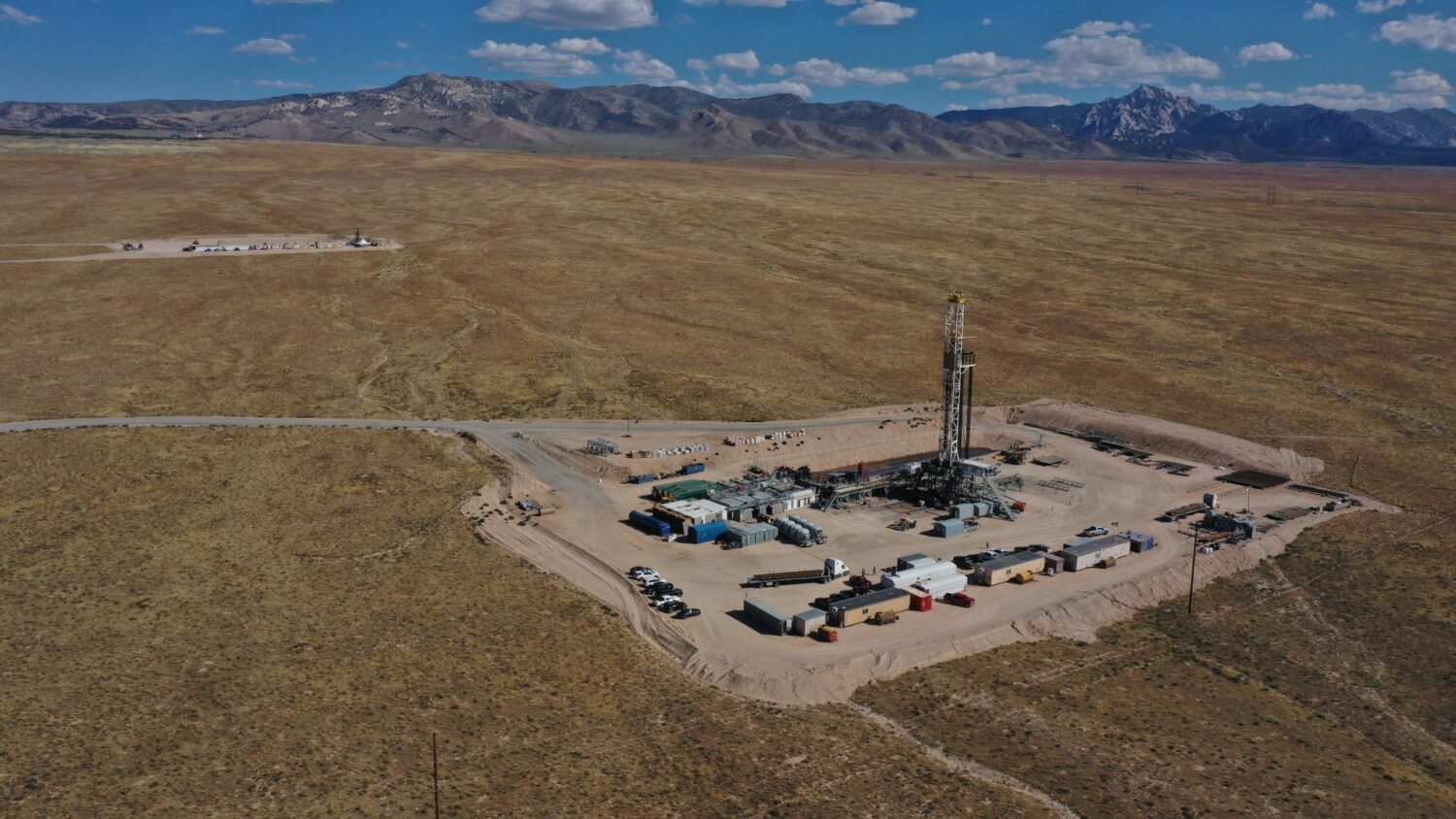This article originally appeared on Climate & Capital Media.
At a seminal moment in the historic breakup of U.S. corporate giant General Electric, shareholder activist group Market Forces has accused the industrial conglomerate of materially misleading investors on critical greenhouse gas emission data from its giant power division, whose coal and natural-gas-powered turbines are one of the world’s most significant emitters of CO2 emissions.
This week, Market Forces filed a “tips, complaints, and referrals” (TCR) form with the US Securities and Exchange Commission Office of the Whistleblower seeking “appropriate sanctions for material misrepresentations” for omitting critical details in public statements on the so-called Scope 3 carbon emissions of its gas turbine engines. (The TCR is part of the SEC’s online whistleblowing site for the public to report suspected securities fraud, false and misleading statements, and other suspected securities violations.)
The most serious complaint is that GE, with a global power turbine market share similar to that of German power giant Siemens, reports far lower Scope 3 emissions. “How is it possible that GE, which has a similar global turbine market share as Germany’s Siemens, yet is reporting Scope 3 greenhouse emissions that are three times lower than Siemens?” asks Market Forces spokesperson, Antony Balmain. “This suggests they are misrepresenting GE’s progress towards meeting the global net zero emissions by 2050 goal.”
The SEC does not comment on whistleblower investigations or whether it is even evaluating the complaint. A GE spokesperson contacted by Climate & Capital Media dismissed the complaint as “without merit” and declined further comment on the complaint’s details.
Vastly undercounting Scope 3 emissions
Scope 3 is a crucial but complex climate change metric that measures the carbon emissions from a product’s use, based on the Greenhouse Gas Protocol, a joint initiative of the World Resource Institute and the World Business Council for Sustainable Development to keep the rise global warming to below 1.5 degrees Celsius. For example, if GE sells a gas or coal power generator, it is responsible for any carbon emissions the power plant generates during use.
Market Forces says GE deliberately understated CO2 generated from giant GE gas turbines by using “creative practices in its methodology, contrary to international standards that GE claims to follow.” GE’s reported emission numbers also mislead investors on its progress to meet ambitious net zero emissions reduction targets by 2050, the group adds.
By challenging the veracity of one of the most important metrics used to judge the financial impact of climate change, Market Forces is questioning the credibility of a global power provider that has supplied worldwide customers with more than 7,000 gas-fired turbines that generate almost half of the world’s gas-fired electricity, making it one of the largest carbon emitters in the world. GE’s power business, for now, is also responsible for more than 90% of GE’s total reported Scope 3 carbon emissions of 320 million metric tons of CO2, which is only 100 million tons less than the annual total emissions of the United Kingdom.
Market Forces says GE’s actual number could be three times that number.
Investor relations blitz
Credible Scope 3 numbers matter because GE is in the midst of full-blown investor relations push to rally stakeholder support for its historic decision to break up the storied conglomerate into three separate companies. The new power company will be called GE Vernova and is a combination of GE Renewable Energy, GE Power, and GE Digital. It will join GE Aerospace, which is the remnants of the original GE on the New York Stock Exchange. Last year, GE spun off GE Healthcare.
The time for investors to know about GE’s Scope 3 numbers is now, says Market Forces. GE is holding its Q4 corporate earnings call next week and GE Vernova’s inaugural investor conference in March, where it will pitch the shareholder benefits of the new standalone power company.
A review of GE’s investor documents and public statements reveals that decarbonization and managing climate risk are key commercial and investor objectives for the new firm. The company’s desire to move away from its fossil fuel image is so strong that when it created the new company name it decided to combine “verdant,” meant to represent the ”green of the Earth”, and nova, from the Latin novus, or “new.”
GE Vernova CEO Scott Strazik says the company is well-positioned to drive “both electrification and decarbonization.” Aligning the company to these goals is “one of the world’s greatest investment opportunities,” he says.
‘Mostly greenwash’
That goes to the heart of the Market Shares complaint. Investors could be harmed because GE’s Scope 3 disclosures give “the appearance that GE emits less carbon, and therefore is better managing its climate risk,” warns Market Shares. Binbin Mariana, a former banker and leader of the organization’s efforts to develop the complaint, is more blunt. GE’s claims “are mostly greenwash” and materially misrepresent GE’s carbon footprint.
“At the very moment that GE is preparing investors for the spinoff of its most intensive greenhouse gas polluting power subsidiary, it appears they are deliberately downplaying their greenhouse gas emissions profile by using creative climate accounting practices in its methodology,” she told Climate & Capital Media. This is material, she says because GE’s investors “need details about the significant climate-related financial risks concerning the company.”
Scope 3’s complex arithmetic
The challenge for investors is the sheer complexity of the Scope 3 measurement process. At the core of Market Forces’ allegations is a very serious charge that GE derives its Scope 3 calculations in a dramatically different way from Siemens and others adhering to international standards.
GE says it computes Scope 3 greenhouse gas calculations by focusing on an “allocation factor” methodology that reduces its “net” Scope 3 emissions — that is already lower than “gross” Scope 3 emissions. Using this methodology allows GE to report a discount on the amount of CO2 emissions from its coal and gas turbines based on its share of the total cost of the power plants where they are installed. In other words, the company neglects to take responsibility for all Scope 3 emissions from power plants it has facilitated.
Two reports. Two numbers
Market Forces also says GE may be misleading investors by using one set of assumptions in its emissions reporting and another in its management discussion. In its 2022 annual report, GE recently stated that it expects “the gas market to remain stable over the next decade with gas generation continuing to grow low-single-digits.” Market Forces says this is “severely misaligned” with the International Energy Agency’s (IEA) outlook for gas in its latest Net Zero Emissions by 2050 scenario and GE’s commitment to achieving net zero emissions by 2050.
Balmain hopes that Market Forces’ challenge of GE’s greenhouse gas claims will allow investors to avoid the fate of earlier GE investors who, almost a generation ago, made stock buying decisions based on former CEO Jack Welch’s aggressive use of “creative accounting” to manage the company’s corporate earnings favorably. That, says Market Forces, led to “disastrous results” for shareholder value.
GE’s latest eco-push also echoes an earlier push when it pursued its “Ecomagination” strategy 25 years ago to capitalize on developing climate awareness. At that time, the Harvard Business Review published an article questioning whether Ecomagination had gone too far “by stretching into areas that many people don’t consider very green.” By doing so, Andrew Winston wrote in HBR, GE “may be risking a valuable business and brand asset.”
Not too long after, GE stock, once a staple in almost every American stock portfolio, began a protracted decline, leading to this year’s historic breakup. Sitting on Market Forces’ greenwash complaint, the SEC now has a chance to investigate whether history will repeat itself.
Peter McKillop is the founder of Climate & Capital Media, a mission-driven information platform exploring the business and finance of climate change.











